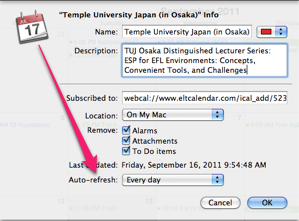Fukuoka JALT:
University entrance exams, four-skills tests and washback in the Japanese context
Date: Friday, January 22nd, 2021 Time: 6:00 PM - 8:00 PM
Speaker: David Allen (Ochanomizu University, Tokyo)
Description:
Please note the date: January 22, 2021 (Friday) (YES, FRIDAY, not Saturday)
Online: The Zoom link will be posted on the Fukuoka JALT website (https://fukuokajalt.org) the day before.
Please note the date: January 22, 2021 (Friday) (YES, FRIDAY, not Saturday)
Online: The Zoom link will be posted on the Fukuoka JALT website ( https://fukuokajalt.org) the day before.
Since the middle of the 20th century, the English education system in Japan has undergone numerous reforms. These "communicative" reforms have sought to modernize English language education, from the traditional grammar-translation methodology with its focus on the written language, to a communicative approach that emphasizes the acquisition of linguistic knowledge as well the ability to apply this through the four skills of listening, speaking, reading and writing (e.g., see MEXT, 2017a, 2017b, 2018a).
As part of the most recent reform, the Ministry of Education, Culture, Sports, Science, and Technology (MEXT) is seeking to reform the use of English examinations for university entrance. In MEXT's view, without reforming the exams, school teachers will face difficulty in implementing the new curriculum because of the pressure to teach to high-stakes university entrance exams. Consequently, MEXT proposed the abolishment of the English section of the Common Test from 2024 and has recommended that universities utilize one or more of the officially recognized four-skills tests administered by private testing agencies to assess the English ability of applicants.
In this presentation, I will describe the reform and its background, the criticisms of the proposal, and the different motivations of those who have criticized it. I will also consider the criticisms of the former National Center Test and note some of the revisions made for the new Common Test, which will be implemented for the first time in January 2021. Moreover, I will summarize some of the criticisms of the current entrance exams administered at universities (i.e., the in-house, second-round exams, or nijishiken). Interestingly, in the discourse surrounding the new proposal, discussion of the limitations of these current exams is conspicuously absent (Allen, 2020).
I will also discuss the washback mechanism and the factors that mediate washback to the learner and the teacher, with reference to studies conducted in the Japan context (e.g., Allen, 2016, 2017; Nagatomo & Allen, 2019; Sato, 2018; Watanabe, 1996, 1997). I will argue that, while washback is a complex process that is mediated by a range of context-dependent factors, washback research is ultimately the only way to truly determine the impact of exams on English education in Japan. I will consider some of the crucial aspects of conducting washback studies � that is, research that involves primary data collection, not mere discussion � so that the research outcomes have the potential to influence English education policy. Such washback research is urgently needed across a wide variety of tests and educational contexts in Japan.
David Allen teaches English language and applied linguistics courses at Ochanomizu University in Tokyo. He has been a teacher in Japan since 2002 and has taught in a wide range of contexts in Japan and the UK. He has published in journals such as Language Teaching Research, Language Assessment Quarterly, and the International Journal of Bilingualism. He has had a long-standing interest in language assessment, and has conducted washback research with research grants from the British Council and the Eiken Foundation of Japan. He is an active member of the TEVAL SIG and is the current editor of its publication, Shiken.
?
Organization: Fukuoka Chapter of the Japan Association for Language Teaching (Fukuoka JALT)
Cost: free
Venue: Online: The Zoom link will be posted on the Fukuoka JALT website the day before
Location: Online, Online Events, Online Event
![]() Add this to iCal
Add this to iCal
![]() (Need help?)
(Need help?)
![]() Add to Outlook
Add to Outlook
![]() (Need help?)
(Need help?)
Contact Fukuoka JALT
Website: www.fukuokajalt.org
Email QR Code:







